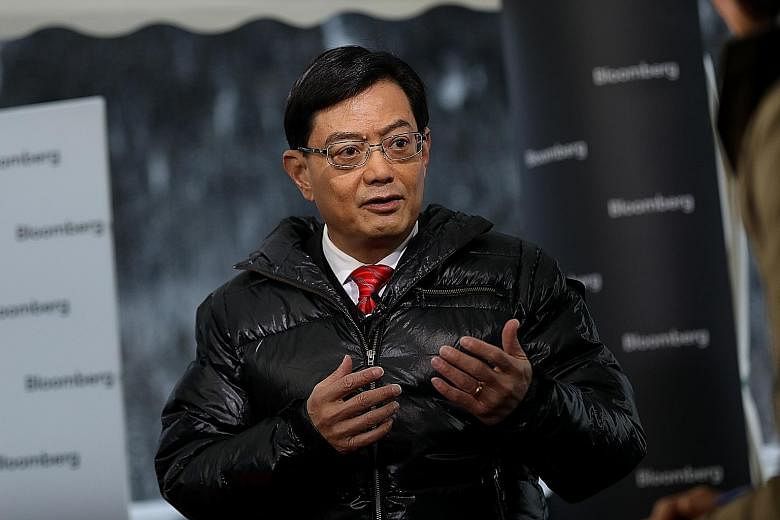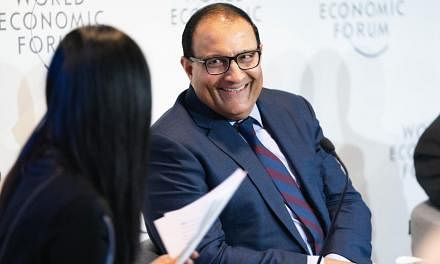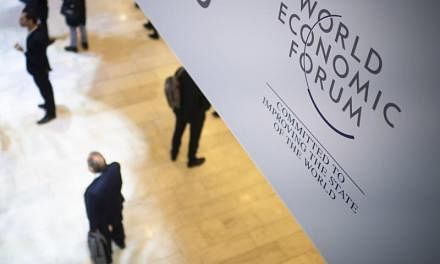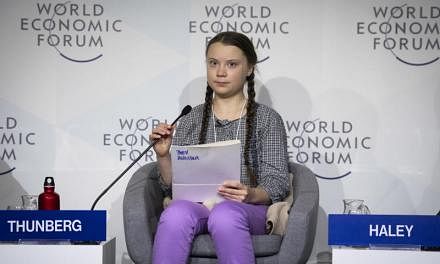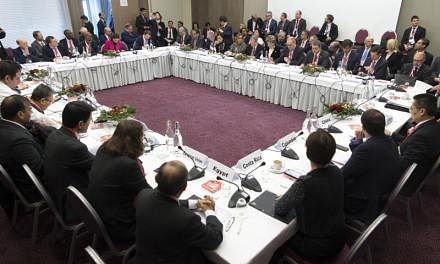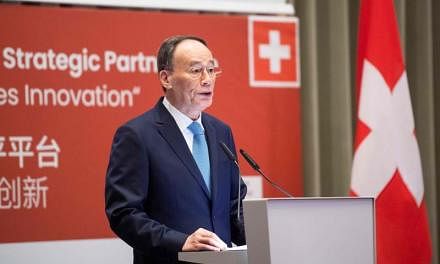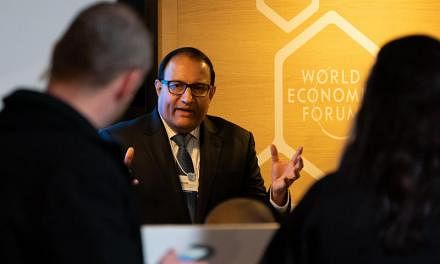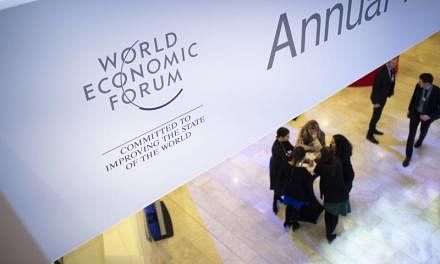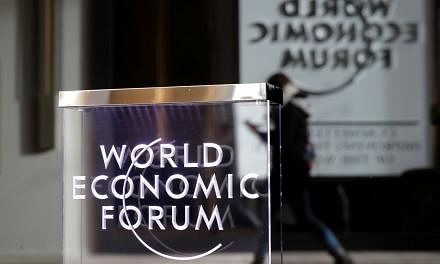DAVOS • It is vital the US and China settle their trade differences to avoid damaging growth elsewhere in the world, Singapore's Finance Minister Heng Swee Keat said.
"It is important for both sides to try and cut a deal because the impact on the global economy of any trade friction is going to be very negative," Mr Heng said in an interview with Bloomberg Television on the sidelines of the World Economic Forum meetings in Davos.
The world's top policymakers and executives gather this week in Davos with the global economy at a turning point: The upending of trade frameworks and a cyclical slowdown in demand have prompted widespread downgrades of global growth. Another came on Monday from the International Monetary Fund, though it left growth forecasts for the United States and China untouched.
Singapore is one of the most export-reliant countries in the world, and US-China trade tensions and a slowing global economy are par-ticularly worrying for the authorities in the city state.
Economic growth held above 3 per cent for a second year in 2018, and Prime Minister Lee Hsien Loong expects an expansion of 1.5 per cent to 3.5 per cent in 2019, with "major uncertainties" in the global economy and nervous financial markets weighing on the outlook.
US and China trade negotiators resumed talks this month to try to resolve their dispute, with the two sides making little progress so far on issues of intellectual property, according to people close to the discussions.
Mr Heng said trade tensions are prompting changes in how goods are manufactured and traded.
"In the short run, many companies are really scrambling to look at how they can restructure the supply chain to make it a little more resilient," he said.
South-east Asia is a potential beneficiary as companies seek to shift supply chains, the minister said, echoing recent comments from economists and businesses who see countries such as Vietnam and Malaysia as potential winners from the trade war.
"A number of the South-east Asian countries, I think, will have the benefit of this restructuring," Mr Heng said. Logistics companies are already reporting shifts as a result of the trade conflict and changing global dynamics, he said.
"At the same time, the Chinese companies are also going out of China - China has a very explicit strategy of encouraging the companies to go out," he said. "So, as they go out, the entire supply chain is going to be reconfigured."
Mr Heng warned that trade stress is likely to persist.
"There will continue to be many sources of friction," he said. "This is going to be a fairly medium-to long-term issue. There will be sources of disagreement on how things have to be done and how competition is to be conducted."
BLOOMBERG
